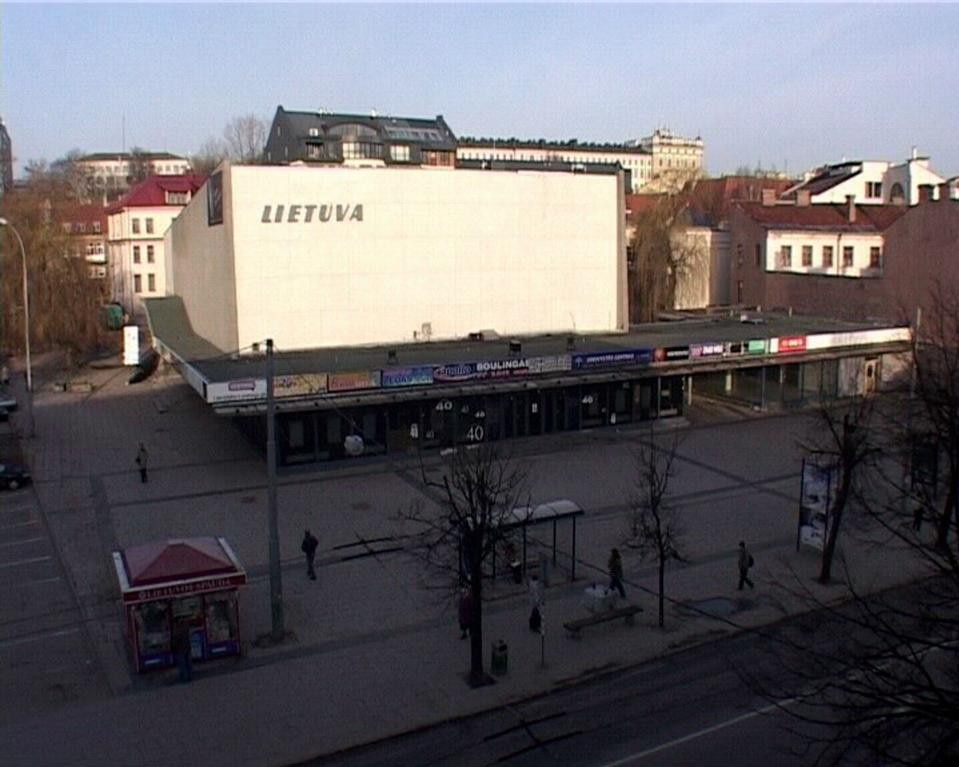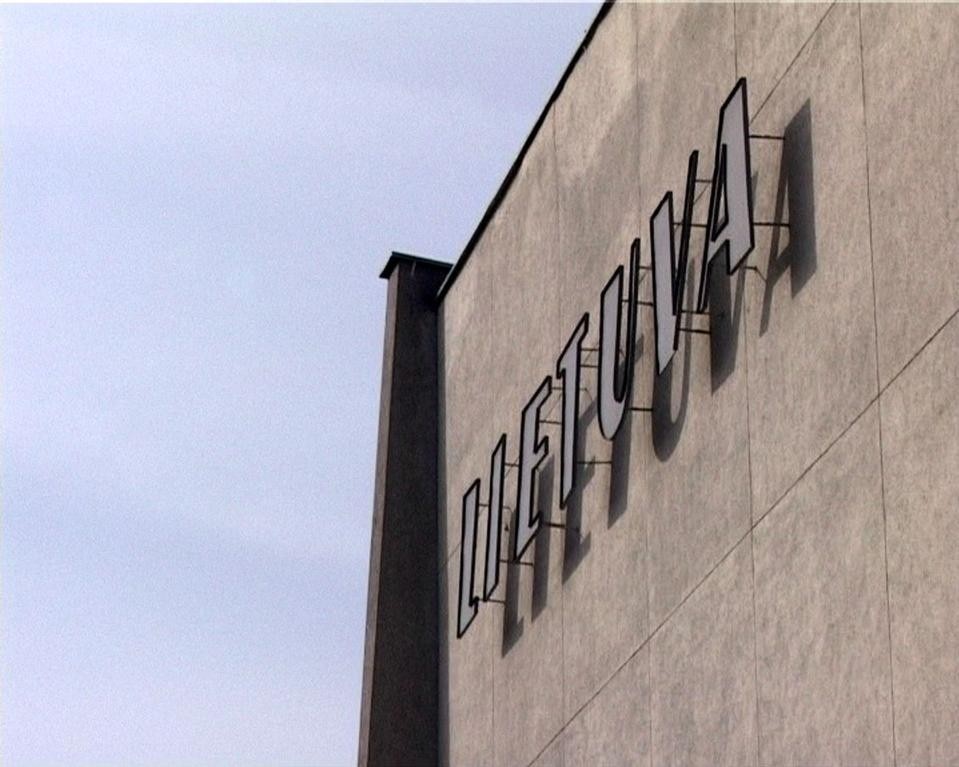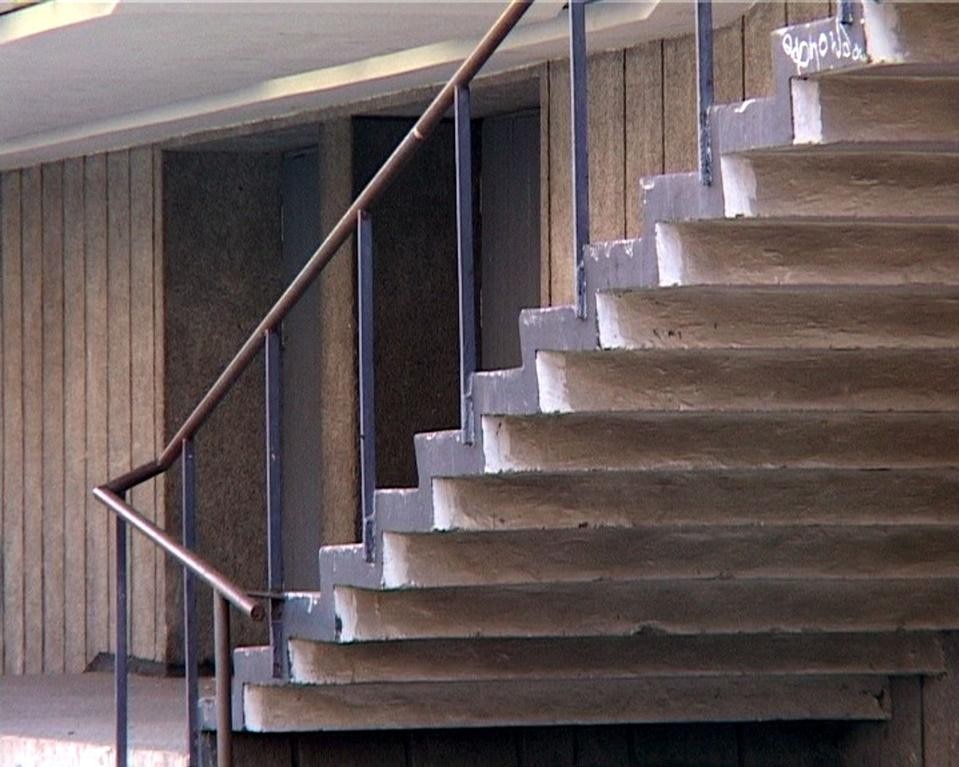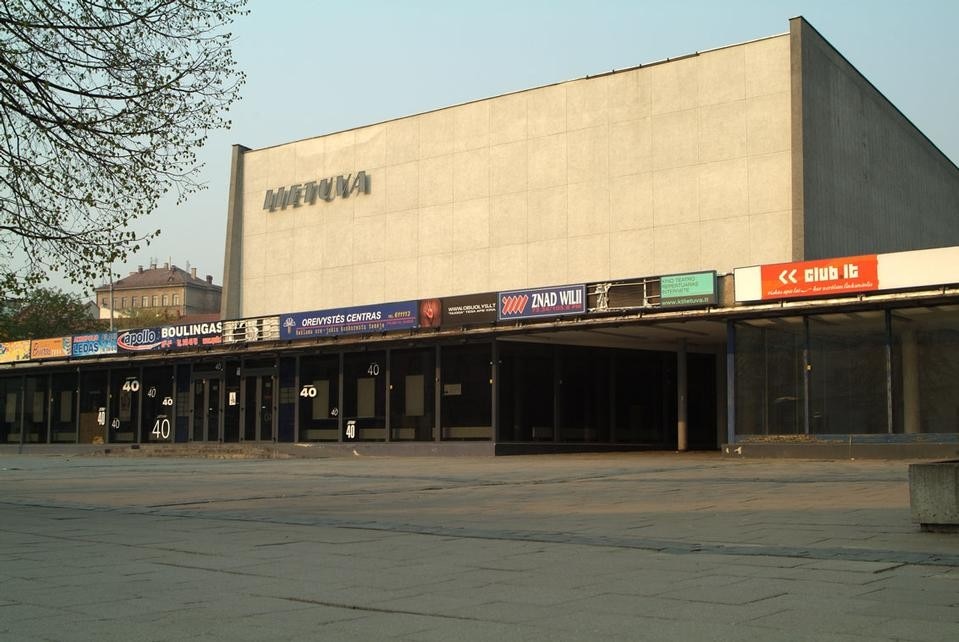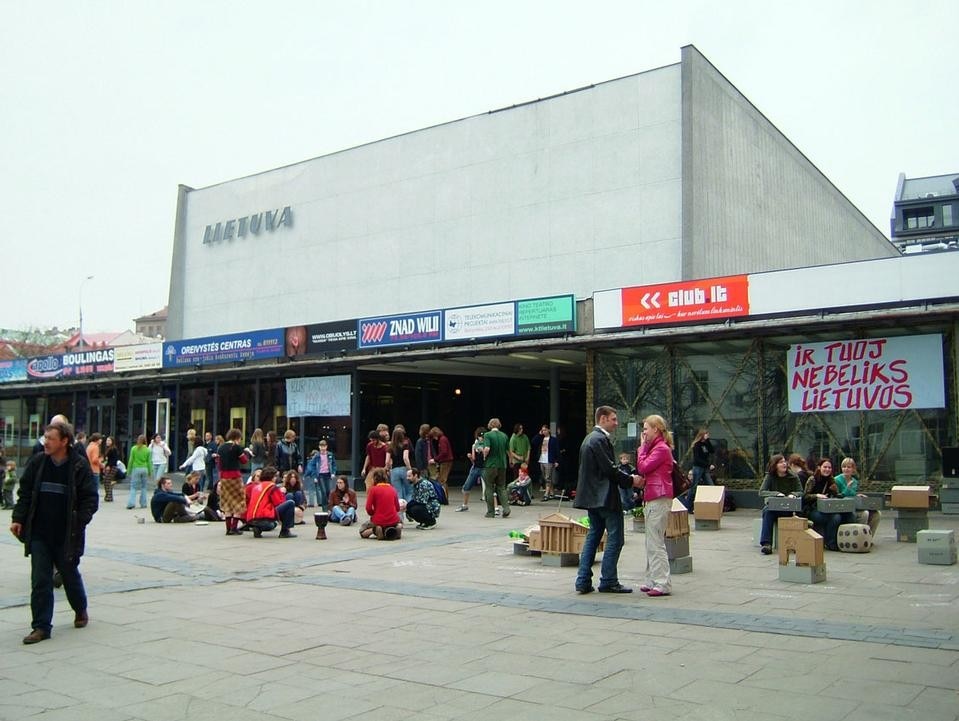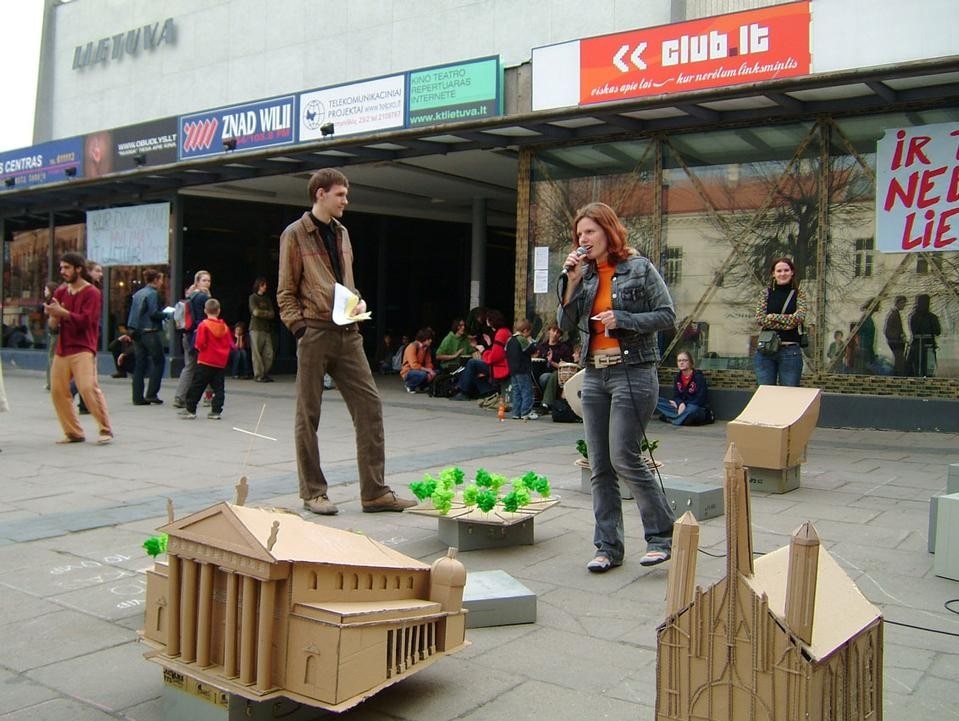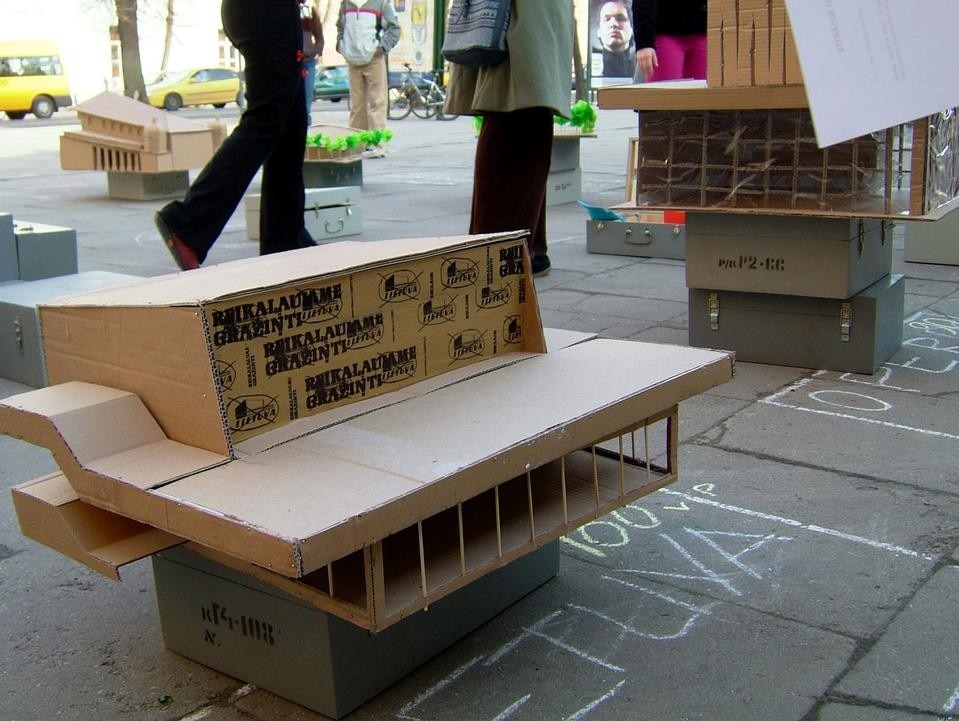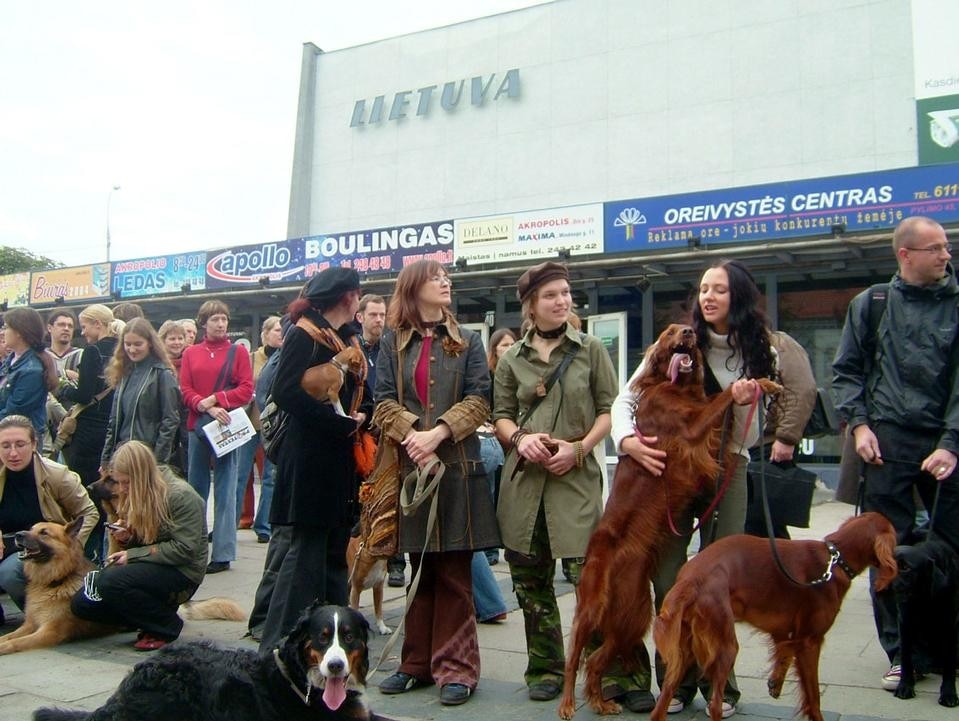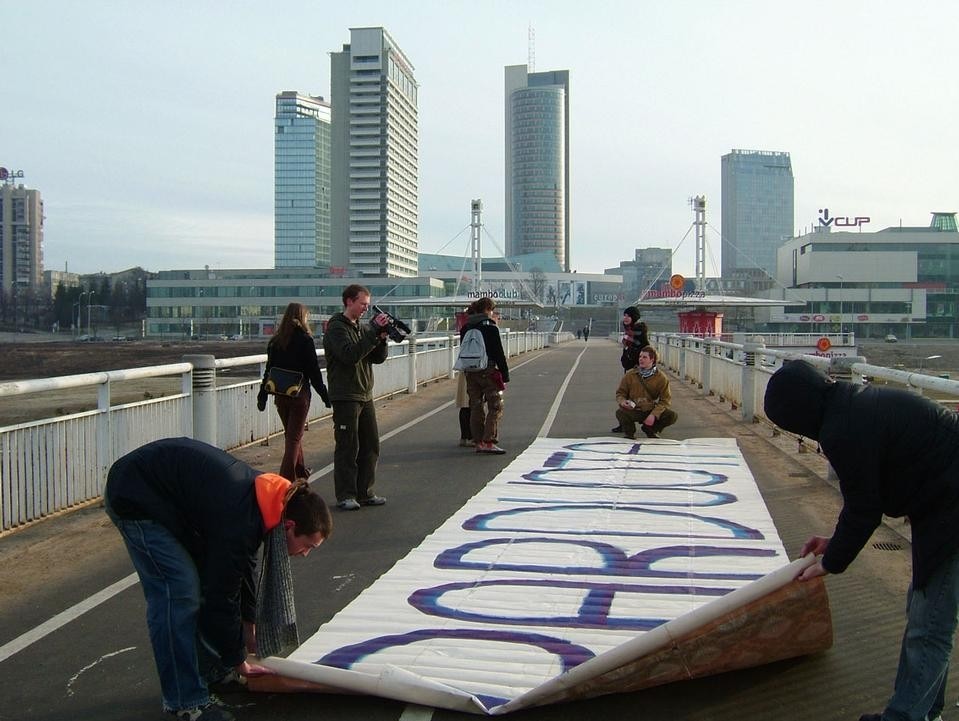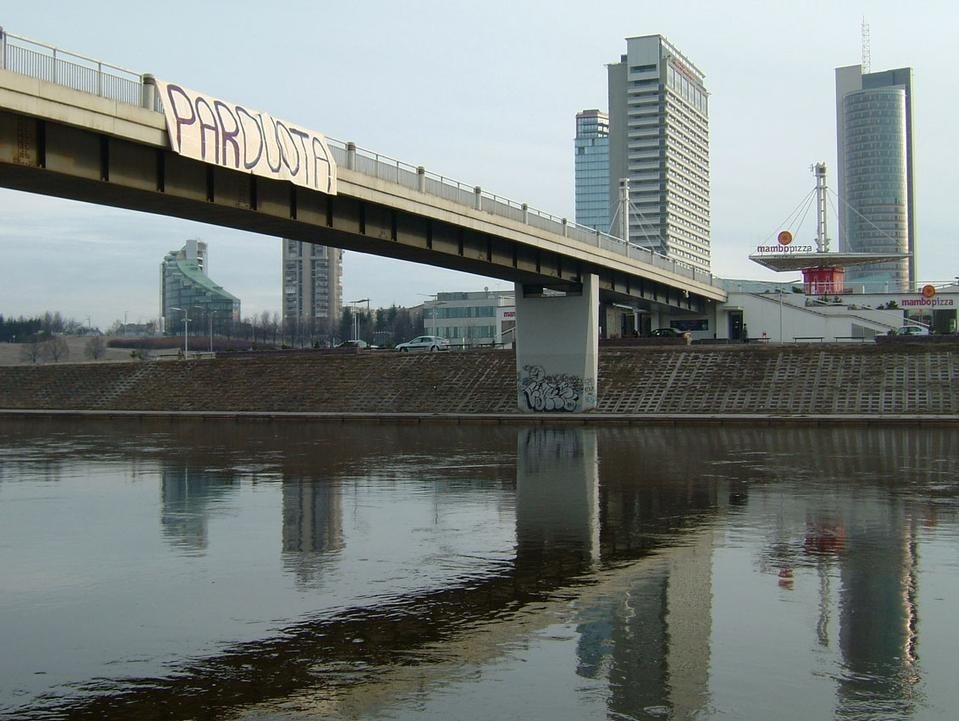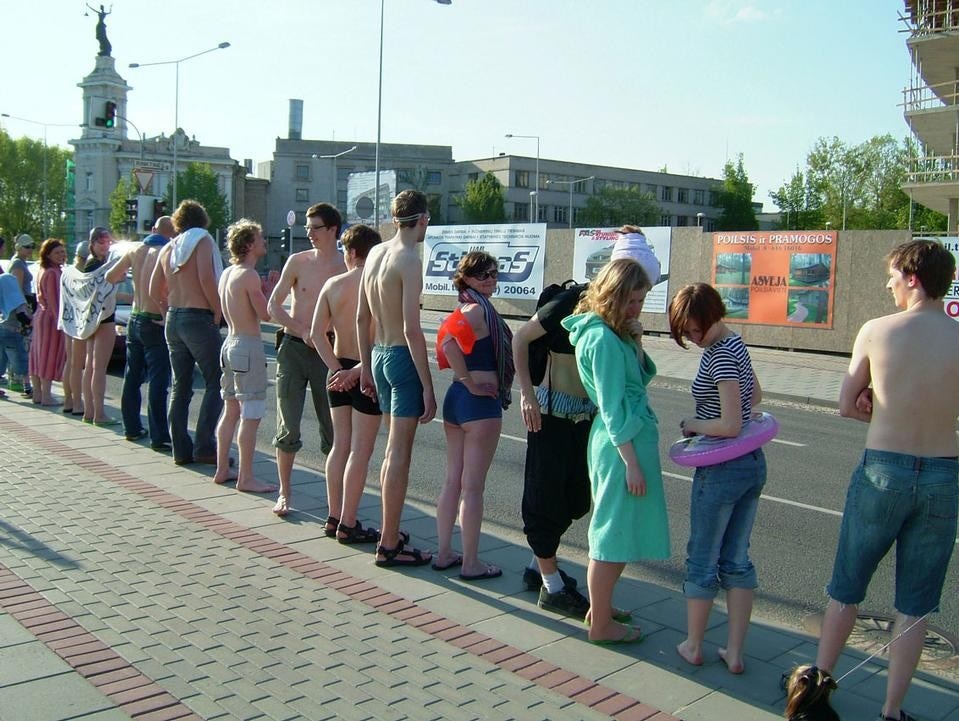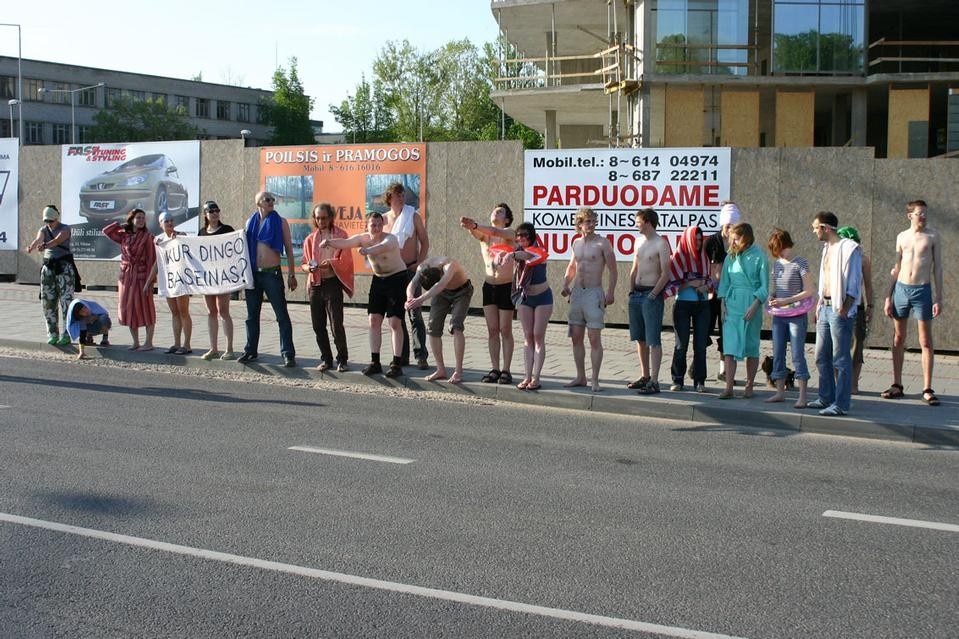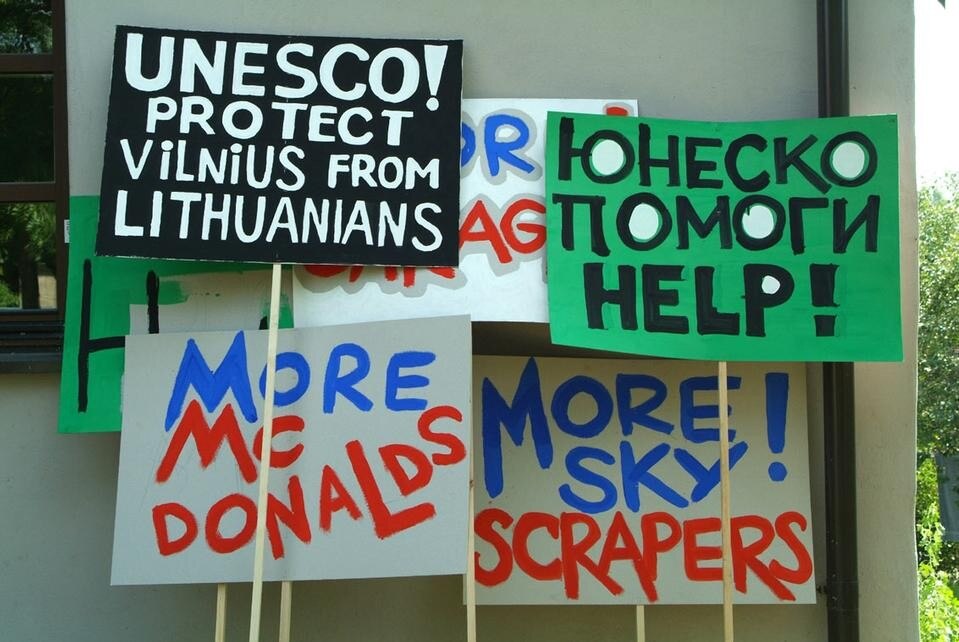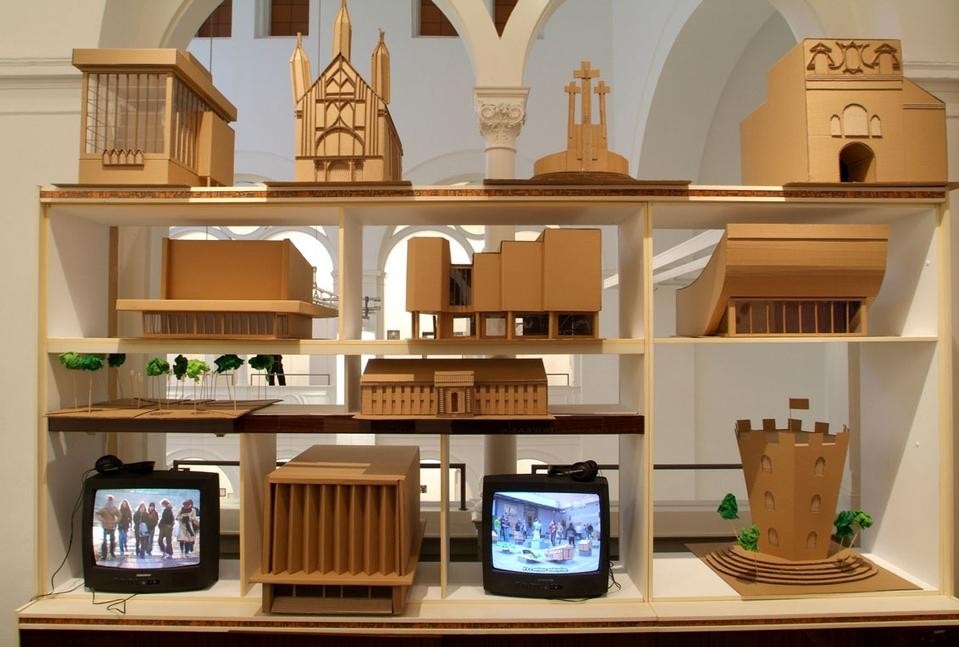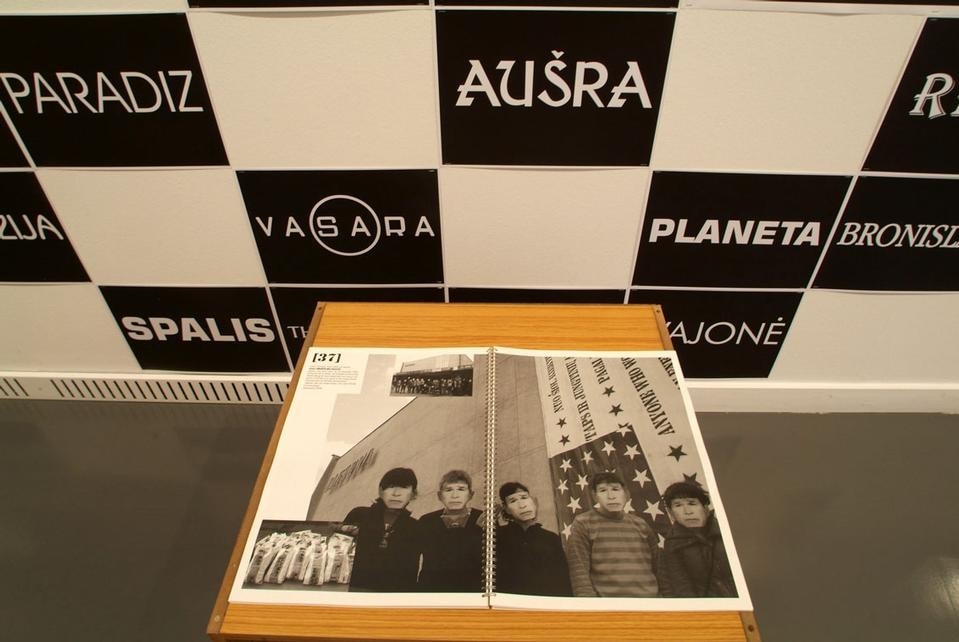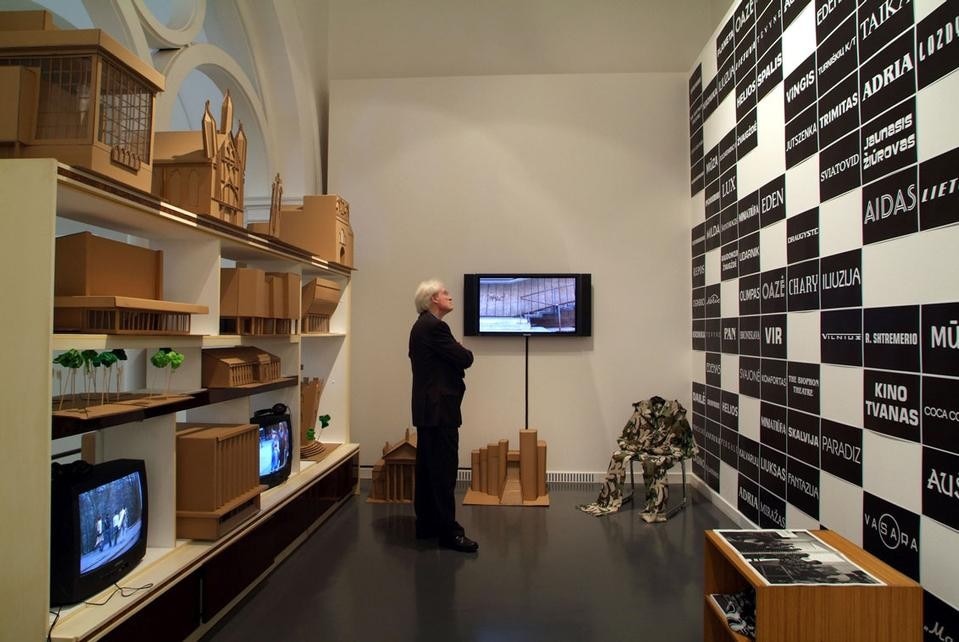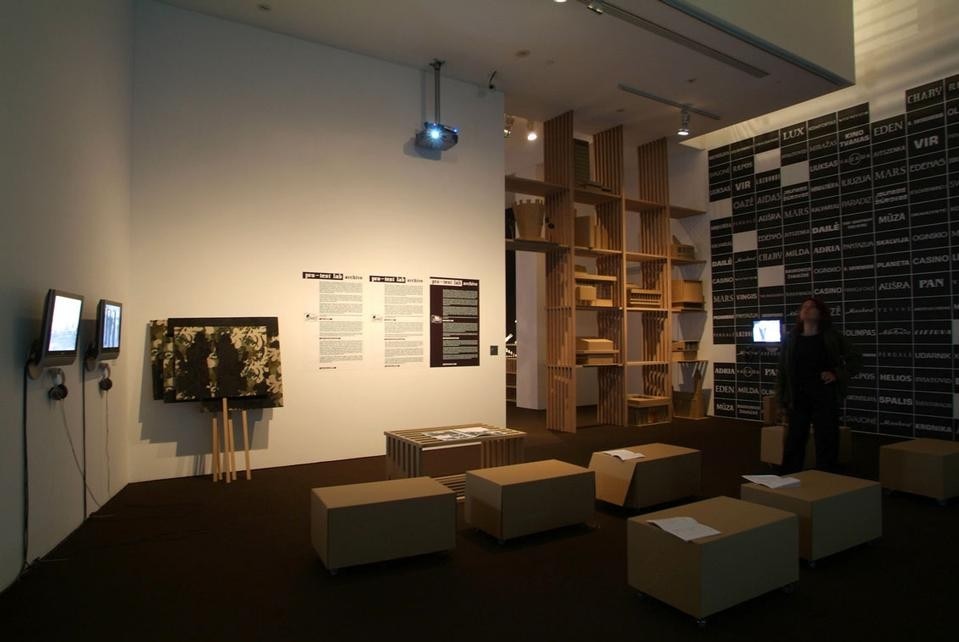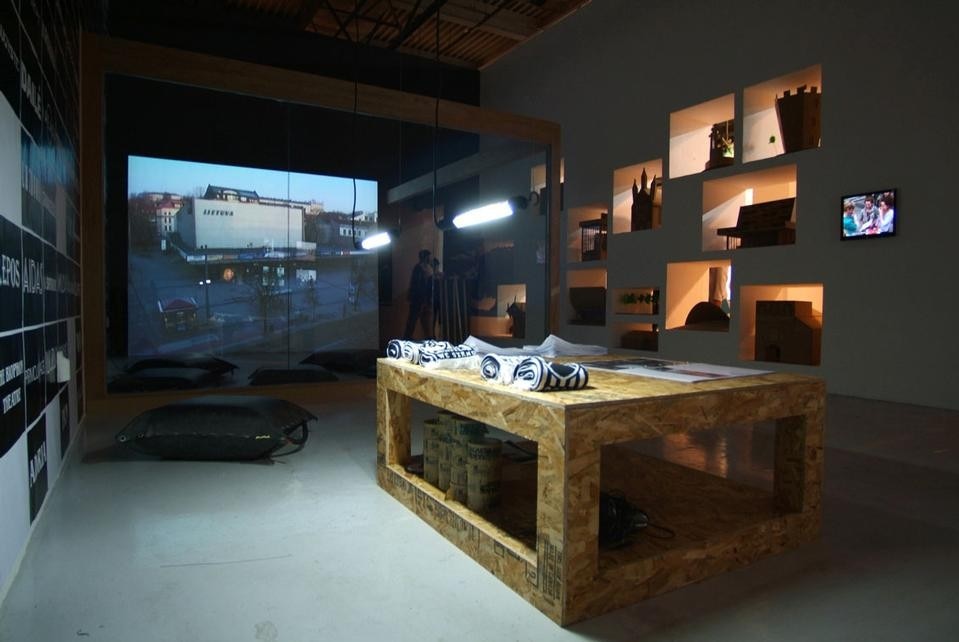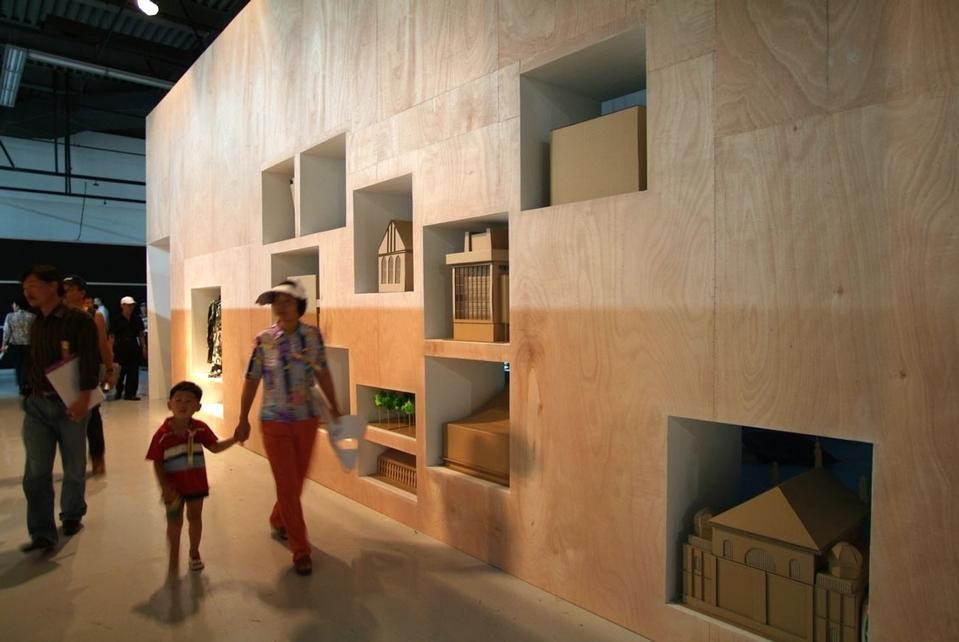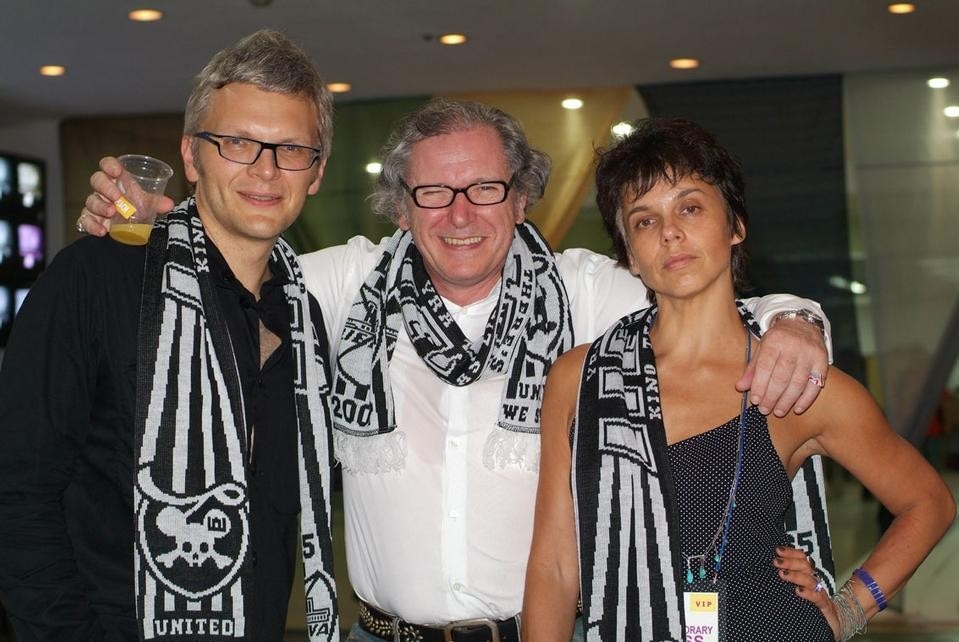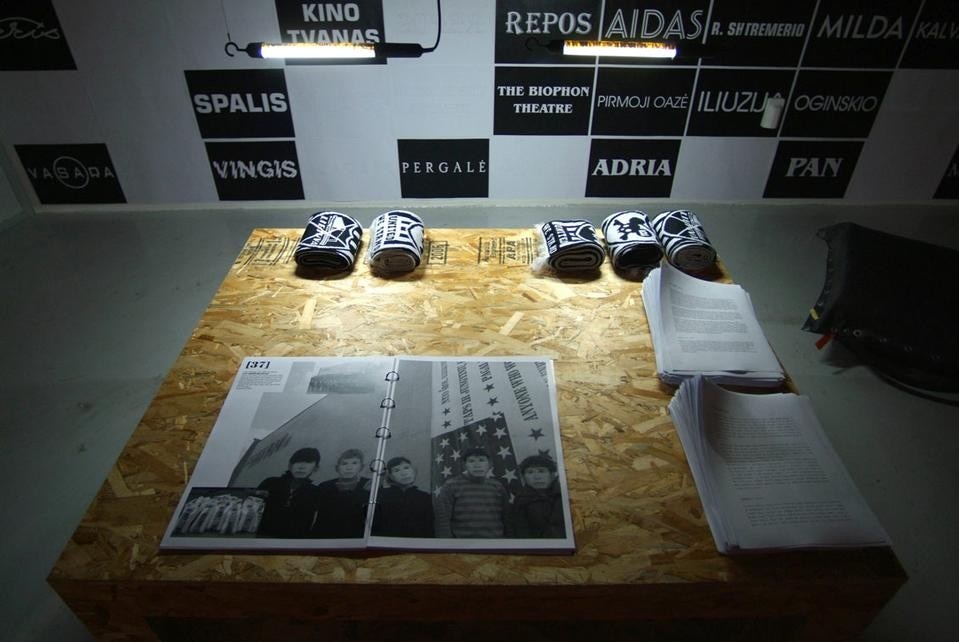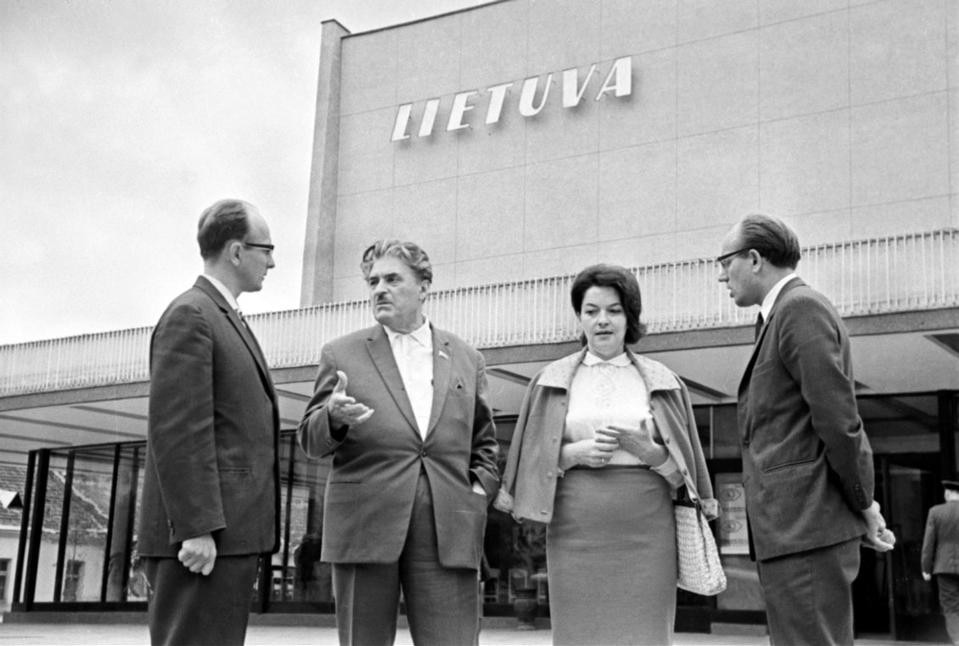Public space, landmark buildings, cultural life, and public opinion have been the main victims. Despite their modernist aesthetical value, and utility, soviet architecture is now considered to be derelict monuments of the past, memorials to Soviet ideology.
During the Soviet period cinema was crucial to the cultural life of the country, with huge movie theatres being built in the centre of many Lithuanian cities. These cinemas played an important role as places for public gatherings. After independence, as Soviet structures crumbled in a wholesale fashion, cinema buildings became a focus of attention for the real-estate market. In a short period of time private enterprise managed to take over and destroy almost all the cinemas in Vilnius, turning them into apartments, supermarkets, casinos and shopping centres.
It is symbolic that the last cinema to be privatised and destroyed during the past decade is named after the country: Lietuva. On the lost battlefields of privatisation Lietuva has become a significant rallying point. The Lietuva was was built in 1965 as a piece of Soviet modernist architecture, becoming the biggest cinema in Lithuania with more than 1,000 seats and a 200-square-metre screen (offering an ideal image size). It was home to the Vilnius Film Festival and as such has played an important role in the imaginative life of a whole generation of local people. To say to somebody “Let's meet at the Lietuva” really meant something during the Soviet occupation. In front of the cinema a vast public square offered an ideal space for gathering, debating, chatting and hanging out. In 2002, the Vilnius municipal authorities quietly sold the cinema to private property- developers with a caveat that it had to operate as a cinema for a three-year period. That term ended on 1 July 2005.
Is it not strange that during all these years no voices of protest were raised in Lithuania? Why were people silent, indifferent, during this time of change? Why has there been no protest at all since the years of “singing revolution”?
It might be thought that the cultural, urban, activist practices that call for protest, for the reclaiming of public space, come from the Western cultural tradition of democracy. A repressive Soviet past simply erased such activities from people’s memories. Nowadays, the discourse of protest is not possible. Protesting means looking over one’s shoulder, longing for a past; it connotes Stalinism and the massive repression deriving from the Gulag. Hence the notion of protest, and Leftist practice as such, has a negative meaning for many people in the post-Soviet world.
The state and market forces also stand in the way of protest. Neo-liberal conformity means, of course, avoiding antagonism while at the same time making use of it. In such a context it is very difficult to speak of protest.
If protest is impossible, if resistance is unimaginable, what kind of artistic strategy might be used in order to generate some kind of protest? And if there is no protest, can we maybe bring it about, make it happen? How do we open up the contradictions hidden on site?
In March 2005 the former Lietuva ticket office in Vilnius was squatted and converted into a pro-test lab inviting people to propose different protest scenarios; to both inspire action and make it happen. Beginning as a case study of the destruction of the Lietuva movie theatrethe largest Soviet modernist pavilion-type building in Lithuaniait has developed into a space and an archive of various forms of protest (and legal proceedings) against the corporate privatisation of public space.
The Pro-test Lab has performed the function of a recording device, and gradually built up an identity and a scenario for both space and archive. Referring to the early model of the Lumière Brothers’ camera, which had a twofold function (to shoot film and to project it), this recording device has generated actions and registered different forms of protest. It captures the protest, which accumulates, matures, and yet remains unidentified, unvoiced, ever in search of a format and a way of becoming vocal. It has developed into a rallying point that extends artistic claims into political resistance.
Artistic praxis ought to reflect change, let’s say. Although the question is, once more, how does it contribute to change, in fact? Is it possible to construct a work that wouldn’t just analyse or reflect change but actually generate it? How does one organise the capacity to provoke it?
The Pro-test Lab addressed collective production and participation and was aimed at creating a community to activate people’s cultural and political imagination. A people’s movement called “For Lithuania without quotation marks” was founded in support of the cinema and the project. The citizens of Vilnius who’ve joined the Pro-test Lab come from different, sometimes antagonistic, communities and social groups, young and old, students and pensioners, intellectuals and workersbut all trying to imagine what a positive kind of protest might be. With a bit of dash, turning pro and test into action, they have constructed a new identity for the place, as well as creating a site for testing the potential of protest.
To set the ball rolling we organised a mailing-list forum that programmed narratives and a space to do with the search for contemporary forms and formats of disobedience against the scenario of a single system. At the same time the site was opened up to conflict, as small groups of architecture students, Green Party activists, vegans, anarchists, musicians, students from TV and cinema school, animators, filmmakers and producers, theatre students, Social Democrat party members, community leaders, casual passers-by and regular hangers-out opposed, collaborated, argued with and resisted each other. This was a space to socialise and make mistakes in, not a place of consensus but one of production.
The Pro-test Lab Archive is an art project that organises a collection of images and props, and the relationships they produce with the act of protest. The archive maps the attempts to stage an autonomous platform for action through an art project that can penetrate reality through political acts. This develops both inside and outside the art system by simultaneously considering the tension that such a relationship produces.
The archive is constructed through the events of artistic production staged as a campaign of reclaiming public space as their method of protest. It acts to initiate the debate elicited by the conflict between privatisation and publicness, art and ethics, activism and production. Starting as an art project, the Pro-test Lab is archiving all the possibilities of impossible protest that rally people against the specific situation of the privatization of public space.
Nomeda & Gediminas Urbonas are artists living and working in Vilnius, Trondheim and Boston; and studying the transformation of the society going through a transitional period of changes.
Their art projects deal with the urban environment, architectural developments, cultural heritage with the aim to reclaim the public space, that is currently under the threat of privatization. Urbonas have exhibited their works at Documenta 11 in Kassel, Manifesta 4 in Frankfur/Main, 3d Berlin and 9th Lyon Biennales among other international shows. In 2005 Urbonas commenced an action to confront destruction of an important piece of community architecture the Lietuva Cinema in Vilnius under the aegis of the multi-venue exhibition Populism.
In March 2007 the Pro-test Lab Archive was exhibited in the Second Moscow Biennale and Venice Biennale as part of their project Villa Lituania, that was awarded with a “honorable mention for the national pavilion”. In March 2008 they had a large-scale career survey exhibition at MACBA in Barcelona. They also teach at MIT, Cambridge U.S. and NTNU – Norwegian University for Science and Technology, where Nomeda is pursuing her PhD thesis.
